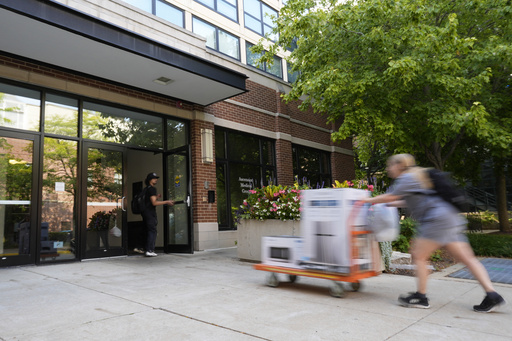
After a challenging summer filled with technical issues, many of America’s potential college students have now completed their Federal Student Aid applications. Unfortunately, a redesign of the process has led to a 9% decrease in the number of high school seniors completing their Free Application for Federal Student Aid compared to the previous year. This drop was as high as 40% in the spring, which is typically a crucial time for students to submit their forms for financial aid packages to be assembled by schools.
College counselors and advisors are unsure of the exact impact these FAFSA problems will have on college attendance rates. However, the delays have undoubtedly influenced where students choose to enroll, as many were forced to make decisions with limited financial information. One student, Adjovi Golo, intended to attend Spelman College but faced processing issues with her FAFSA, ultimately leading her to enroll at DePaul University in Chicago to avoid taking on more debt.
The decline in FAFSA completion rates has disproportionately affected students facing obstacles in accessing higher education, such as low-income individuals and students of color. Advocates worry that these delays, alongside a recent Supreme Court decision on affirmative action, will impact college enrollment and diversity.
The complex FAFSA process is a barrier for many students seeking financial aid, and a recent attempt to simplify the form in 2023 encountered multiple problems, including glitches and long wait times for assistance. This has left students frustrated and uncertain about their financial aid status, potentially leading to decisions to postpone enrollment or opt for more affordable options closer to home.
Students are urged to complete the FAFSA to access various forms of financial support for their education. However, the challenges introduced by the redesign have left many students uncertain about their financial aid packages, causing anxiety and delays in planning for their educational future.
Despite these obstacles, counselors and advocates emphasize the importance of continuing education and the potential long-term implications of delaying college enrollment. Addressing these FAFSA issues promptly is crucial to ensure that all students have equal opportunities to pursue higher education without unnecessary barriers.
